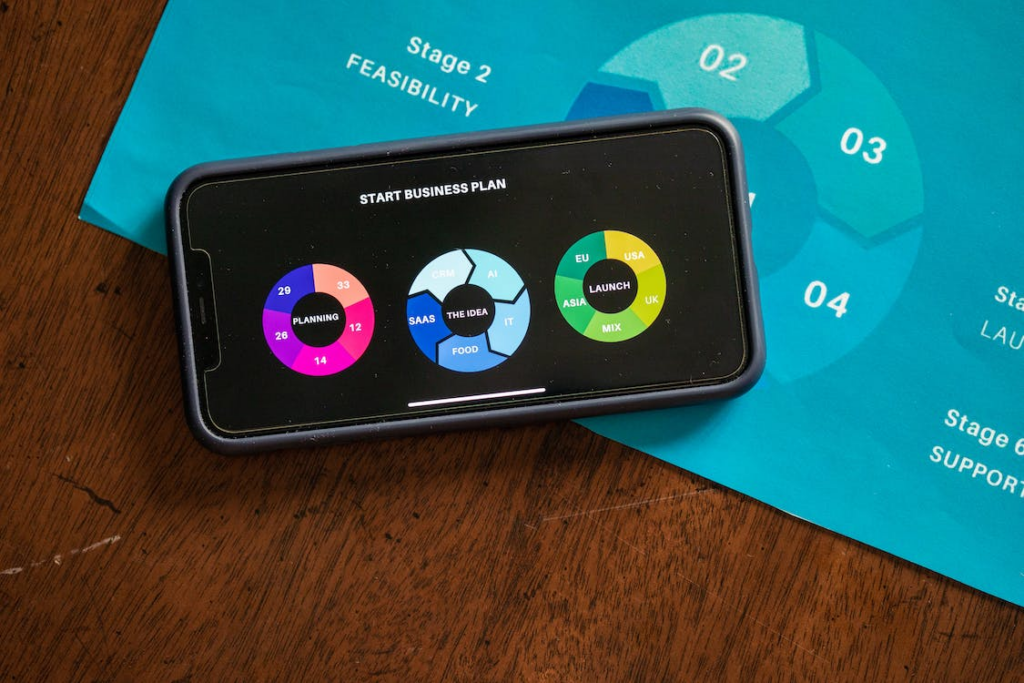A global pandemic, cost-of-living crisis, increasing financial woes… The global landscape is shifting, and it’s causing many of us to rethink our work situation or seek ways to earn some extra income.
During COVID 19, many of us became accustomed to working from home, wrapping our heads around tools like remote desktop software for Windows and probably feeling resentful about being asked to return to the office.
You may have considered utilizing your hard-learned skills to branch out on your own, take a little extra work, try something different, and perhaps even build your own business.
It’s an attractive idea. But how do you get there?
If you’re considering bringing in some extra income, a side gig is a brilliant way to supplement your salary. But what are your options? Should you go freelance or take the entrepreneurial route?
This article will explore the differences and similarities between a freelancer vs entrepreneur, the pros and cons of each, and deciding which is most suitable for your personality and lifestyle.

What is a Freelancer?
Put simply, a freelancer sells their skillset to a client in exchange for a payout. They work on their own schedule, source their own clients, and do all their own work for an hourly/day rate or a flat project fee.
Freelancers are business owners, but their business is themselves. A freelancer is a business asset – without them, the company ceases to exist. Being a freelancer is all about building your brand and selling yourself.
No matter their industry, freelancers work independently to source and complete jobs, often on a short-term basis, and utilize their skillset to produce high-quality work.
For example, an experienced programmer working for a tech company may offer their services as a freelancer on the side of their full-time job. To get started, they would build a list of clients, choose a pay scale that matches their skill level, and set a schedule that works for them.
What is an Entrepreneur?
An entrepreneur mindset requires building a business that grows bigger than the entrepreneur themselves. This means creating a long-term asset with scalable income potential that earns money even as the entrepreneur sleeps.

Entrepreneurs work less on strengthening their individual skills and more on developing a business. At first, an entrepreneur might be hands-on, but as the business grows, the goal is to hire and delegate to employees, automate tasks, and grow into a profitable company.
To return to the programmer example, a freelance programmer might eventually start their own software business. Using their knowledge and experience, they might code and sell a piece of software to companies. This may require employing staff, securing office space, and investing in additional services like marketing.
Is There Some Crossover?
Yes! There are degrees of freelancing that can bridge the gap between employee and entrepreneur.
Some freelancers are independent contractors who work for a single company. They still have some of the freedom of freelancing, but they operate almost like employees.
Then there are freelancers who operate like entrepreneurs. Recently, solopreneur has gained popularity as a term for entrepreneurship freelancing, referring to a person who runs a much larger business by themselves.
To belabor our programmer example, a solopreneur might build a piece of software to sell to companies but manage every aspect of that business alone – no employees, no office space, just the various growth and income benefits of entrepreneurship.
Freelancing can bridge the gap between leaving your day job and becoming a fully-fledged entrepreneur. Consider it a scale: you can plan to operate on whichever part of it works best for you.

That said, there is one significant difference. If you’re trying to figure out whether you’re a freelancer or an entrepreneur, ask yourself this: Does my business still make money without me?
If the answer is yes, you’re an entrepreneur. A freelancer can’t make money if they’re not producing work.
Pros and Cons: Freelancer Vs Entrepreneur
Let’s look at some of the pros and cons of each.
Freelancer
| Pros | Cons |
|---|---|
| Easy to get going: Since you are a one-person business, the barrier to entry is low. If you have a skill that people want to buy, you can sell it – it’s as simple as that. | You’re still working for someone else: Freelancing offers a lot of personal freedom, but you’re still ultimately working for others. You might find the work dull and meaningless. |
| Low start-up costs: You don’t need significant investments. | Finding clients: You are responsible for finding clients willing to pay your rates. |
| Lower ongoing investments: The only things you’re investing in as a freelancer are your skills and whatever equipment you need to operate. | Less scalable income: You only have so much time and energy, which means you can only do so much work in a day. Your income can grow with your skills and client base, but only to a finite level. |
| Quicker income generation: You can start operating as soon as you find clients. Once the work is complete, you get paid! | Less future proof: Many freelancers find their skills less valuable as technology improves. Moreover, if you cannot work anymore for any reason, your brand will not survive without you. |
| Potential for UX improvement: As a freelancer, you have the opportunity to directly incorporate UX improvement in your work, ensuring that your clients receive high-quality and user-friendly solutions. |
Entrepreneur
| Pros | Cons |
|---|---|
| You work for yourself: You have the ultimate choice. You can build something you care deeply about, focus on things you’re passionate about, and grow in whichever direction you want. | Can be daunting: An entrepreneur has the world on their shoulders from day one. The decision to build a business can be intimidating. |
| Infinitely scalable profit: The earning potential is huge since your profits scale with your growth. | Slow income generation: Many businesses take time to become successful. |
| Earn even when you’re not working: Income rolls in regardless of your presence. You’re earning even as you sleep or take a vacation. | High start-up costs: Capital is required to start operating, which can need hefty savings, loans, or taking on investors. |
| Building a legacy: Whether your end goal is a buy-out or an asset to pass down to future generations, you’re building something bigger than yourself. | High ongoing investment costs: Growing a business requires long-term investment. Staff, property, training, and maintenance are ongoing expenses. |
Which is Right for You?
Whether you become a freelancer or entrepreneur, choosing the right path relies on understanding what you want to achieve and how your work setup will fit your lifestyle.
What Are My Goals?
It might sound philosophical, but what are you trying to create? Something just for you? Or something bigger than yourself?
Ultimately, either path means becoming self-employed, and that means hard work ahead.

A freelancer gets to choose their level of commitment, which can be attractive when you’re starting out.
They can operate on various levels, from spending a few hours a weekend doing a couple of extra side jobs to being a solopreneur. The income potential is high but is also hindered by your own time and energy.
On the other hand, an entrepreneur aims for the big time, which can be a daunting but rewarding leap. The income potential is vast, and the assets are lasting.
What is My Lifestyle?
What kind of person are you? Which lifestyle do you have or want to have?
A single parent of two young children might make an extraordinary entrepreneur who can leave a legacy for future generations. But childcare costs and family time are going to be a heavy consideration.
A freelancer might choose work-life balance over income and only take on an amount of work to support themselves comfortably. Or they might push themselves hard for higher earnings, getting little downtime.
What Are My Skills?
Freelancers must consider the primary skills they are selling, whether that’s programming or web design. But entrepreneurs need to combine their practical skills with the ability to run a business successfully.
Are you good at management? Or do you prefer only to be responsible for yourself?
Where am I Starting From?
Freelancers and entrepreneurs alike have some start-up requirements. They both need skills, time, equipment, and clients.
Consider your starting off point. Do you work in the industry you plan to do business in? If so, you might already have the connections and experience you need to get going.
Do you have a lot of starting capital? Then entrepreneurship might be right for you.
To Sum Up
Freelancing and entrepreneurship aren’t for everyone. But they are a viable alternative to working a day job or making some side income.
If your ultimate goal is personal and financial freedom, working for yourself could be your dream job.
And the best thing is, you don’t always have to choose one or the other. There is a lot of room to experiment and grow.
If you’re planning to build a company and become an entrepreneur, freelancing can be a significant first step. You can use the sliding scale of freelancing to build your skills to a high level, create connections, and grow your confidence into a fully-fledged business.
Looking for a good place to begin? Search for leads at SolidGigs and kickstart your freelance journey.
Keep the conversation going...
Over 10,000 of us are having daily conversations over in our free Facebook group and we'd love to see you there. Join us!



